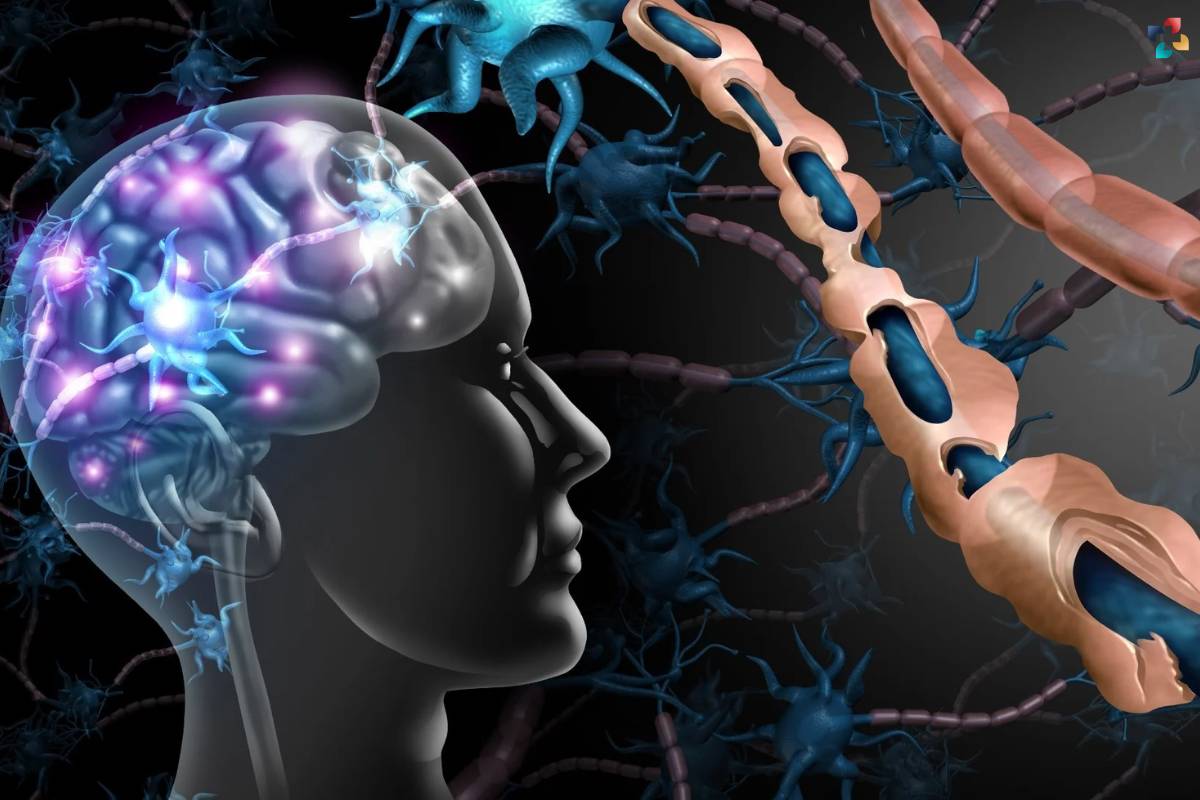Source-News-Medical
Multiple sclerosis (MS) is a chronic and often disabling neurological disorder that affects the central nervous system (CNS), including the brain and spinal cord. With its complex nature, MS poses challenges for those living with the condition and the healthcare professionals dedicated to managing it. In this comprehensive article, we delve into the main causes of multiple sclerosis, explore the potential for a long life with MS, understand the physiological effects of the condition, and discuss the current state of MS management.
What is the Main Cause of Multiple Sclerosis?
The exact cause of multiple sclerosis remains elusive, and it is believed to result from a combination of genetic and environmental factors. While researchers have made significant strides in understanding the disease, pinpointing a singular cause has proven challenging.
A. Immunological Basis
One prevailing theory suggests that MS is an autoimmune disorder, wherein the body’s immune system mistakenly attacks the protective covering of nerve fibers, known as myelin. Myelin acts as an insulator, facilitating efficient transmission of nerve impulses. When myelin is damaged, nerve signals are disrupted, leading to the varied symptoms associated with MS.
B. Genetic Predisposition
There is evidence to suggest a genetic component in the development of multiple sclerosis. Individuals with a family history of MS are at a slightly higher risk of developing the condition. However, genetic predisposition alone is not sufficient to cause MS, indicating that environmental factors play a crucial role in triggering the disease.
C. Environmental Factors
Various environmental factors have been linked to an increased risk of developing MS. These include vitamin D deficiency, exposure to certain viruses during childhood, and geographical location. Regions farther from the equator, where sunlight exposure (a source of vitamin D) is lower, have shown higher prevalence rates of MS.
Can You Live a Long Life with MS?
The impact of multiple sclerosis on life expectancy varies among individuals and is influenced by several factors, including the type of MS, age at onset, and overall health. While MS is a chronic condition with no cure, advancements in medical care and treatment options have significantly improved the outlook for those living with the disease.
A. Types of MS
1. Relapsing-Remitting MS (RRMS):
This is the most common form of MS, characterized by periods of relapses or exacerbations followed by periods of partial or complete recovery.

2. Secondary Progressive MS (SPMS):
Over time, individuals with RRMS may transition to SPMS, where there is a steady accumulation of disability without distinct relapses.
3. Primary Progressive MS (PPMS):
In PPMS, disability progresses steadily from the onset without clear relapse and remission phases.
4. Progressive-Relapsing MS (PRMS):
PRMS is a less common form of MS characterized by a steady progression of the disease with occasional relapses.
B. Life Expectancy
Most individuals with MS have a normal life expectancy. While the condition can significantly impact quality of life and daily functioning, it does not necessarily shorten lifespan. Advances in medical research and treatment options have contributed to better management of symptoms and improved overall outcomes for individuals with MS.
C. Managing Health and Well-Being
Leading a healthy lifestyle, maintaining regular medical check-ups, and adhering to prescribed treatments are essential components of managing MS and promoting longevity. Individuals with MS are encouraged to engage in physical activity, manage stress, and prioritize mental health to enhance their overall well-being.
What Happens When You Have MS?
The symptoms and progression of multiple sclerosis can vary widely among individuals, making it a highly heterogeneous condition. The CNS damage caused by MS disrupts the flow of information within the brain and between the brain and the rest of the body, leading to a diverse range of symptoms.
A. Common Symptoms
1. Fatigue:
Persistent fatigue is a prevalent symptom in individuals with MS, impacting daily functioning and quality of life.
2. Muscle Weakness and Spasticity:
MS can cause weakness, stiffness, and difficulty with coordination, affecting mobility and fine motor skills.

3. Vision Problems:
Optic neuritis, inflammation of the optic nerve, can result in blurred vision, eye pain, and sometimes permanent vision loss.
4. Sensory Disturbances:
Tingling, numbness, or pain in various parts of the body are common sensory symptoms associated with MS.
5. Cognitive Impairment:
Some individuals may experience difficulties with memory, attention, and problem-solving.
6. Emotional and Mood Changes:
Depression, anxiety, and mood swings can be associated with the challenges of living with a chronic condition like MS.
B. Disease Progression
The course of MS is unpredictable, and the progression of symptoms can vary from mild to severe. Relapses, characterized by the sudden onset or worsening of symptoms, may be followed by periods of remission. Over time, however, individuals may experience a gradual accumulation of disability, particularly in the progressive forms of the disease.
Is Multiple Sclerosis Manageable?
While multiple sclerosis is not curable, it is manageable. Treatment strategies aim to alleviate symptoms, slow disease progression, and improve overall quality of life. The management of MS often involves a multidisciplinary approach, combining medical interventions, lifestyle modifications, and supportive therapies.
A. Disease-Modifying Therapies (DMTs)
1. Immunomodulatory Drugs:
Medications such as interferons and glatiramer acetate help modulate the immune system to reduce the frequency and severity of relapses.

2. Immunosuppressive Drugs:
Drugs like ocrelizumab and alemtuzumab suppress the immune system to prevent further damage to the myelin sheath.
B. Symptomatic Treatments
1. Corticosteroids:
Short courses of corticosteroids may be prescribed during relapses to reduce inflammation and speed up recovery.
2. Pain Management:
Medications and therapies are used to address pain and discomfort associated with MS, including neuropathic pain and muscle spasms.
C. Rehabilitation and Physical Therapy
Physical and occupational therapy plays a crucial role in managing MS-related symptoms. These therapies focus on improving mobility, strength, and coordination, as well as addressing specific challenges in daily living.
D. Lifestyle Modifications
1. Exercise:
Regular physical activity helps improve strength, flexibility, and overall well-being. Tailored exercise programs are designed to accommodate individual abilities and limitations.
2. Nutrition:
A balanced and nutritious diet supports overall health and may contribute to managing certain symptoms associated with MS.
3. Stress Management:
Stress can exacerbate MS symptoms. Techniques such as mindfulness, relaxation exercises, and counseling can help manage stress and improve emotional well-being.
Conclusion
Multiple sclerosis is a complex neurological condition that presents challenges for both those living with the disease and the healthcare professionals providing care. While the exact cause remains unknown, ongoing research continues to shed light on the genetic and environmental factors influencing MS development. With advancements in medical care and a holistic approach to management, individuals with MS can lead fulfilling lives, and the prognosis for a long and meaningful existence continues to improve. As the journey of understanding and managing multiple sclerosis progresses, the hope for enhanced treatments and ultimately a cure remains a driving force in the field of neurology.







